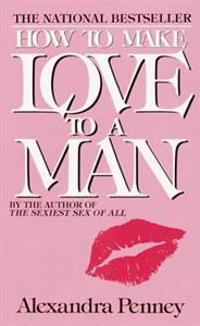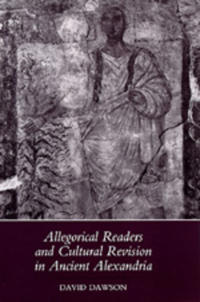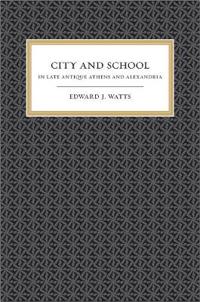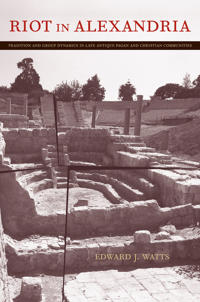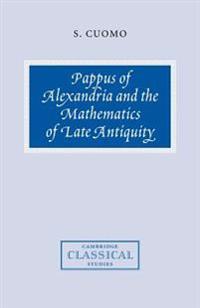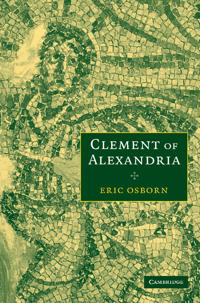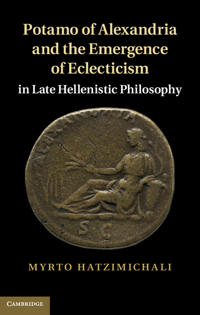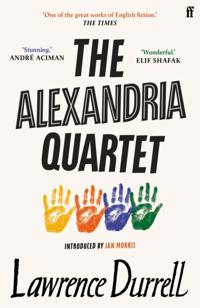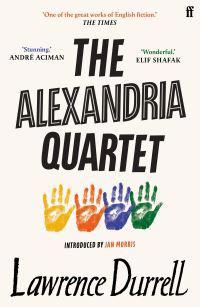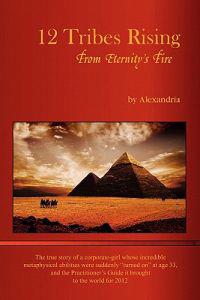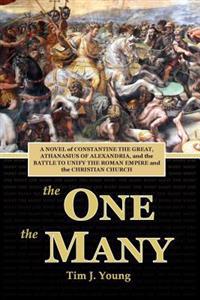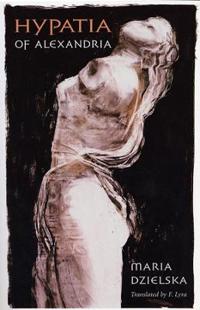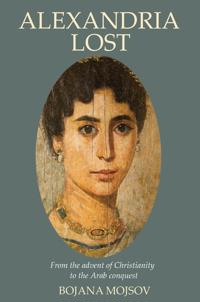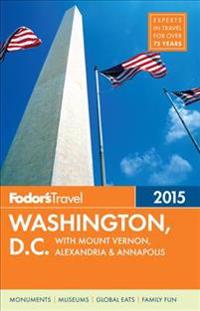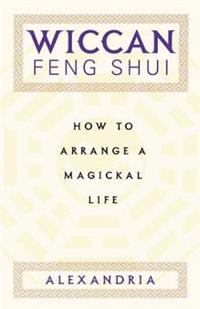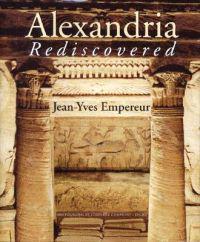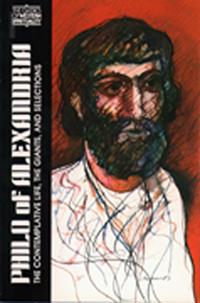How to Make Love to a Man (Pocket)
avAlexandria Penney
ISBN: 9780440135296 - UTGIVEN: 198204ASK ANY MAN. If you can get him to admit it, he'll probably tell you that he would like to be made love to almost as much as being a good lover.
In the past, it is the man who has been responsible for not only the lovemaking, but the romance: candlelight, flowers, music, and tenderness. HOW TO MA[...]Allegorical Readers and Cultural Revision in Ancient Alexandria (Inbunden)
avDavid Dawson
ISBN: 9780520071025 - UTGIVEN: 199112Allegorical readings of literary or religious texts always begin as counterreadings, starting with denial or negation, challenging the literal sense: 'You have read the text this way, but I will read it differently.' David Dawson insists that ancient allegory is best understood not simply as a way o[...]
Seeing Double: Intercultural Poetics in Ptolemaic Alexandria (Övrig)
avSusan A. Stephens
ISBN: 9780520229730 - UTGIVEN: 2003-01-27When, in the third century B.C.E., the Ptolemies became rulers in Egypt, they found themselves not only kings of a Greek population but also pharaohs for the Egyptian people. Offering a new and expanded understanding of Alexandrian poetry, Susan Stephens argues that poets such as Callimachus, Theocr[...]
City and School in Late Antique Athens and Alexandria (Häftad)
ISBN: 9780520258167 - UTGIVEN: 2008-07A lively and wide-ranging study of the men and ideas of late antique education, this book explores the intellectual and doctrinal milieux in the two great cities Athens and Alexandria from the second to the sixth century to shed new light on the interaction between the pagan cultural legacy and Chri[...]
Riot in Alexandria (Inbunden)
avEdward J. Watts
ISBN: 9780520262072 - UTGIVEN: 2010-05This innovative study uses one well-documented moment of violence as a starting point for a wide-ranging examination of the ideas and interactions of pagan philosophers, Christian ascetics, and bishops from the fourth to the early seventh century. Edward J. Watts reconstructs a riot that erupted in [...]
Riot in Alexandria
ISBN: 9780520294868 - UTGIVEN: 2017-02This innovative study uses one well-documented moment of violence as a starting point for a wide-ranging examination of the ideas and interactions of pagan philosophers, Christian ascetics, and bishops from the fourth to the early seventh century. Edward J. Watts reconstructs a riot that erupted in [...]
Pappus of Alexandria and the Mathematics of Late Antiquity
ISBN: 9780521036894 - UTGIVEN: 2007-06This book is at once an analytical study of one of the most important mathematical texts of antiquity, the Mathematical Collection of the fourth-century AD mathematician Pappus of Alexandria, and also an examination of the work's wider cultural setting. An important first chapter looks at the mathem[...]
Clement of Alexandria (Pocket)
avEric Osborn
ISBN: 9780521090810 - UTGIVEN: 2008-11Clement of Alexandria (150-215) lived and taught in the most lively intellectual centre of his day. This book offers a comprehensive account of how he joined the ideas of the New Testament to those of Plato and other classical thinkers. Clement taught that God was active from the beginning to the en[...]
Potamo of Alexandria and the Emergence of Eclecticism in Late Hellenistic Philosophy (Inbunden)
avMyrto Hatzimichali
ISBN: 9780521197281 - UTGIVEN: 2011-07Eclecticism is a concept widely used in the history of ancient philosophy to describe the intellectual stance of diverse thinkers such as Plutarch, Cicero and Seneca. In this book the historical and interpretative problems associated with eclecticism are for the first time approached from the point [...]
Alexandria Quartet
ISBN: 9780571267231 - UTGIVEN: 2015-06Lawrence Durrell was one of the best-selling, most celebrated English novelists of the late 20th century. The Alexandria Quartet is unquestionably his most admired work, at heart a sensuous and brilliant evocation of wartime Alexandria. In this world of corrupt glamour, L. G. Darley attempts to reco[...]
The Alexandria Quartet (Häftad)
avLawrence Durrell
ISBN: 9780571283934 - UTGIVEN: 201202Lawrence Durrell was one of the best-selling, most celebrated English novelists of the late 20th century. "The Alexandria Quartet" is unquestionably his most admired work, at heart a sensuous and brilliant evocation of wartime Alexandria. In this world of corrupt glamour, L.G. Darley attempts to rec[...]
The One, the Many: A Novel of Constantine the Great, Athanasius of Alexandria, and the Battle to Unify the Roman Empire and the Christian (häftad)
ISBN: 9780615946870 - UTGIVEN: 2014-03Hypatia of Alexandria (Häftad)
avF. Lyra
ISBN: 9780674437760 - UTGIVEN: 1996-09Hypatia - mathematician, Neoplatonist, and a woman renowned for her beauty - was brutally murdered by a mob of Christians in Alexandria in 415. In this book, Maria Dzielska searches behind the legend to bring us the real story of Hypatia's life and death, and insight into her world. Historians and p[...]
Cavafy's Alexandria (Övrig)
avEdmund Keeley
ISBN: 9780691044989 - UTGIVEN: 1995-12-11C. P. Cavafy, one of the greatest modern Greek poets, lived in Alexandria for all but a few of his seventy years. Alexandria became, for Cavafy, a central poetic metaphor and eventually the heart of a myth encompassing the entire Greek world. In this, the first full-length critical work on Cavafy in[...]
Making Christians: Clement of Alexandria and the Rhetoric of Legitimacy (Övrig)
avDenise Kimber Buell
ISBN: 9780691059808 - UTGIVEN: 1999-03-15How did second-century Christians vie with each other in seeking to produce an authoritative discourse of Christian identity? In this innovative book, Denise Buell argues that many early Christians deployed the metaphors of procreation and kinship in the struggle over claims to represent the truth o[...]
No Longer Separate, Not Yet Equal: Race and Class in Elite College Admission and Campus Life (Övrig)
avAlexandria Walton Radford, Thomas J. Espenshade
ISBN: 9780691141602 - UTGIVEN: 2009-10-12Against the backdrop of today's increasingly multicultural society, are America's elite colleges admitting and successfully educating a diverse student body? "No Longer Separate, Not Yet Equal" pulls back the curtain on the selective college experience and takes a rigorous and comprehensive look at [...]
Alexandria Lost (Häftad)
avBojana Mojsov
ISBN: 9780715638651 - UTGIVEN: 201006Imperialism, nationalism, religion and race: this narrative charts the tensions that destroyed Alexandria's ancient walls, leading to the loss of an entire classical heritage, and beginning a thousand-year rift between Christian Europe and the Islamic Middle East. In the fourth century AD Christian [...]
Alexandria in Late Antiquity
ISBN: 9780801853777 - UTGIVEN: 1996-12Second only to Rome in the ancient world, Alexandria was home to many of late antiquity's most brilliant writers, philosophers, and theologians-among them Philo, Origen, Arius, Athanasius, Hypatia, Cyril, and John Philoponus. Now, in Alexandria in Late Antiquity, Christopher Haas offers the first bo[...]
Alexandria in Late Antiquity (häftad)
ISBN: 9780801885419 - UTGIVEN: 2006-10Second only to Rome in the ancient world, Alexandria was home to many of late antiquity's most brilliant writers, philosophers, and theologians-among them Philo, Origen, Arius, Athanasius, Hypatia, Cyril, and John Philoponus. Now, in Alexandria in Late Antiquity, Christopher Haas offers the first bo[...]
Fodor's Washington, D.C. 2015: With Mount Vernon, Alexandria & Annapolis (Häftad)
avFodor's
ISBN: 9780804142748 - UTGIVEN: 2014-11With history around every corner, Washington, D.C. is a city that magically blends yesterday and today. This updated guide---a strong domestic bestsellers---lets travelers discover the myriad, charms of the nation's capital, from its stately monuments to the trendiest restaurants.
EXPANDED COVER[...]Philo of Alexandria
ISBN: 9780809123339 - UTGIVEN: 1985-03This anthology contains the basic vision of Philo (c. 20 B.C.E.-50 C.E.), the greatest Jewish mystic, philosopher and theologian of the Graeco-Roman era.[...]

